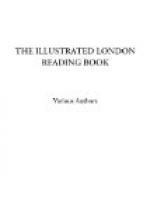To find in this elevated region a rival of Napoleon, we must go back to the times when the feudal institutions had not yet broken the unity of the ancient nations. The founders of religion alone have exercised over their disciples an authority comparable with that which made him the absolute master of his army. This moral power became fatal to him, because he strove to avail himself of it even against the ascendancy of material force, and because it led him to despise positive rules, the long violation of which will not remain unpunished. When pride was bringing Napoleon towards his fall, he happened to say, “France has more need of me than I have of France.” He spoke the truth: but why had he become necessary? Because he had committed the destiny of France to the chances of an interminable war: because, in spite of the resources of his genius, that war, rendered daily more hazardous by his staking the whole of his force and by the boldness of his movements, risked, in every campaign, in every battle, the fruits of twenty years of triumph: because his government was so modelled that with him every thing must be swept away, and that a reaction, proportioned to the violence of the action, must burst forth at once both within and without. But Napoleon saw, without illusion, to the bottom of things. The nation, wholly occupied in prosecuting the designs of its chief, had previously not had time to form any plans for itself. The day on which it should have ceased to be stunned by the din of arms, it would have called itself to account for its servile obedience. It is better, thought he, for an absolute prince to fight foreign armies than to have to struggle against the energy of the citizens. Despotism had been organized for making war; war was continued to uphold despotism. The die was cast—France must either conquer Europe, or Europe subdue France. Napoleon fell—he fell, because with the men of the nineteenth century he attempted the work




